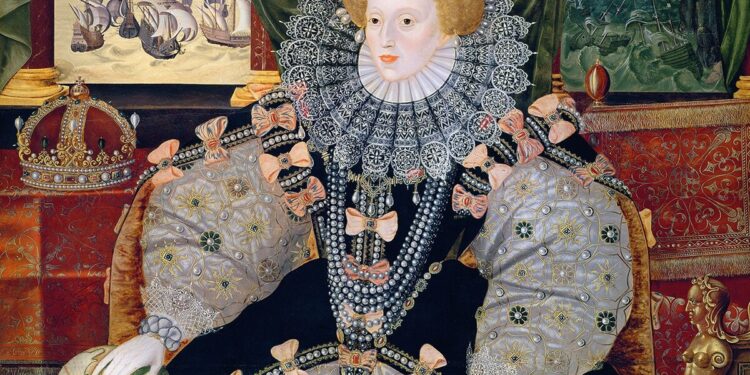Introduction
Elizabethan Age Important Writers And Their Works The Elizabethan Age, which lasted from 1558 to 1603, was a time in English history that is sometimes referred to as the Age of Shakespeare or the Golden Age of English Literature.
Because of the abundance of dramatic and poetic works that have had a profound effect on the globe, this age is frequently considered to be one of the most important in the history of English literature. Because of Queen Elizabeth I’s support of the arts and the comparatively stable political environment of her reign, English play, poetry, and prose flourished throughout the Elizabethan Age.
From poetry and play to prose and philosophy, authors of this era experimented with a variety of forms and techniques, producing works that are still studied and performed today. The most famous author of the time, William Shakespeare, was at the forefront of this creative explosion, but numerous other authors also significantly influenced the growth of English literature.
1. William Shakespeare (1564-1616)
William Shakespeare, often called the greatest playwright and poet in the English language, is perhaps the most famous writer of the Elizabethan era. His works—spanning tragedies, comedies, and histories—have been performed and read worldwide for over four centuries.
Legacy and Contributions
Shakespeare’s plays explore universal themes of human nature: love, jealousy, ambition, power, and betrayal. His ability to portray the complexities of characters and the depth of emotion has made his works timeless. Shakespeare’s influence is immeasurable, with his phrases and vocabulary having enriched the English language. Many words and expressions he coined remain in common use today.
Notable Works
- Tragedies: Hamlet, Macbeth, King Lear, Othello
- Comedies: A Midsummer Night’s Dream, Twelfth Night, As You Like It
- Histories: Richard III, Henry IV, Henry V
- Poetry: Sonnets, Venus and Adonis, The Rape of Lucrece

2. Edmund Spenser (1552-1599)
Edmund Spenser was a poet best known for his epic poem The Faerie Queene, which is often considered one of the greatest works of English literature. Spenser’s work is characterized by its rich language, moral themes, and intricate allegories.
Legacy and Contributions
Spenser’s poetry, particularly in The Faerie Queene, blended elements of romance, chivalric tradition, and Christian theology. He used his work to explore themes of virtue, morality, and the role of the monarch. His writing style influenced many later poets, including John Milton. The use of the Spenserian stanza—a nine-line form of verse—was another of his lasting contributions.
Notable Works
- The Faerie Queene: An epic allegory that combines medieval romance with Renaissance humanism and explores themes of virtue and the ideal Christian knight.
- Amoretti: A sonnet sequence celebrating the poet’s courtship of his second wife, Elizabeth Boyle.
- The Shepheardes Calender: A pastoral work that contains twelve eclogues, representing the months of the year.
Read more
3. Sir Philip Sidney (1554-1586)
Sir Philip Sidney was an influential poet, courtier, and soldier. His contributions to the English Renaissance literary tradition include works of poetry, prose, and criticism. Sidney was also one of the foremost members of the Elizabethan court and played a significant role in the cultural life of his time.
Legacy and Contributions
Sidney is best known for his sonnet sequence Astrophel and Stella, which is considered one of the most important works in the English sonnet tradition. He also wrote The Defence of Poesy, one of the most important works of literary criticism in the English Renaissance. Sidney’s writing often dealt with themes of love, courtship, and the ideal of the noble hero.
Notable Works
- Astrophel and Stella: A sonnet sequence exploring the poet’s unrequited love for Stella.
- The Defence of Poesy: An eloquent defense of poetry as a valuable art form and an argument for its moral and social value.
- The Countess of Pembroke’s Arcadia: A prose romance that blends pastoral poetry with political commentary.
4. Christopher Marlowe (1564-1593)
Christopher Marlowe was a playwright, poet, and translator. He is considered one of the most important figures in the development of English Renaissance drama. Marlowe’s works helped shape the course of Elizabethan theater, particularly in terms of style and language.
Legacy and Contributions
Marlowe’s contributions to drama were groundbreaking, particularly in his use of blank verse, a type of unrhymed iambic pentameter. His works are known for their larger-than-life characters, dramatic intensity, and exploration of themes like ambition, human limitations, and the conflict between the divine and the human.
Marlowe’s early death, possibly due to political intrigue, left his legacy as one of English drama’s greatest innovators.
Notable Works
- Doctor Faustus: A tragedy that explores the consequences of a man’s pact with the devil and his desire for unlimited knowledge.
- Tamburlaine the Great: A play that dramatizes the rise and fall of the ambitious and ruthless conqueror Tamburlaine.
- The Jew of Malta: A play dealing with themes of religious conflict, greed, and revenge.
5. John Lyly (1554-1606)
John Lyly was an English writer, poet, and dramatist, best known for his comedies and his work in developing the English pastoral drama.
Legacy and Contributions
Lyly’s contribution to Elizabethan theater was significant in the development of the comedy of manners, characterized by its light-hearted themes of love, wit, and social conventions. Lyly was also the first to popularize the use of prose and verse in a way that influenced later dramatists like Shakespeare.
Notable Works
- Euphues: The Anatomy of Wit: A prose work that set the standard for English prose style and was immensely popular during its time.
- Endimion: A comedy that explores themes of love and the ideal of courtly behavior.
- Galathea: A pastoral play that touches on themes of transformation and love.
6. Thomas Kyd (1558-1594)
Thomas Kyd was a playwright best known for his pioneering work in the genre of revenge tragedy. His most famous play, The Spanish Tragedy, set the stage for many of the revenge plays that followed in the late Elizabethan period.
Legacy and Contributions
Kyd’s The Spanish Tragedy introduced themes of vengeance, political intrigue, and madness that would become central elements in later Elizabethan and Jacobean drama. Kyd’s use of sensationalist, dramatic techniques influenced playwrights such as Shakespeare and Marlowe.
Notable Works
- The Spanish Tragedy: A dark tragedy involving themes of revenge, justice, and the supernatural.
- The Householder’s Philosophy: A philosophical work focusing on the moral and ethical values of the time.
7. Ben Jonson (1572-1637)
Ben Jonson was a playwright, poet, and literary critic who is often seen as the greatest rival of Shakespeare. Jonson’s work in comedy, as well as his role in the development of English satire, made him an influential figure in Elizabethan and Jacobean literature.
Legacy and Contributions
Jonson’s plays focus on social types and manners, often satirizing the follies and vices of society. His most famous comedies, such as Volpone and The Alchemist, exemplify his sharp wit and understanding of human nature. He was also a major influence on the development of English poetic form.
Notable Works
- Volpone: A satirical comedy that lampoons greed and hypocrisy.
- The Alchemist: A comedy that focuses on a group of con artists and their attempts to deceive wealthy patrons.
- Every Man in His Humour: A comedy exploring the foibles and misadventures of the human condition.
8. Sir Walter Raleigh (1554-1618)
Sir Walter Raleigh was an English explorer, soldier, and writer who became an important figure in the Elizabethan court. He is best known for his poetry, historical writings, and his explorations of the New World.
Legacy and Contributions
Raleigh’s poetry, while less voluminous than that of other Elizabethan poets, is known for its elegance and lyricism. His work often explores themes of love, nature, and the transient nature of life.
Notable Works
- The Discovery of Guiana: A prose work that chronicles Raleigh’s voyages and explorations in the New World.
- The Nymph’s Reply to the Shepherd: A poetic response to Christopher Marlowe’s The Passionate Shepherd to His Love.
Read more
9. Thomas More (1478-1535)
Though more commonly associated with the earlier Tudor period, Thomas More’s contributions to the development of the English Renaissance cannot be overlooked. His most famous work, Utopia, remains a key text in the tradition of philosophical literature.
Legacy and Contributions
More’s Utopia is a satirical and philosophical work that critiques the social, political, and economic structures of his time. His writings continue to influence discussions on governance, ethics, and social justice.
Notable Works
- Utopia: A work of political philosophy and social critique that describes an idealized society.
- History of Richard III: A historical work focused on the reign of Richard III.
10. Robert Greene (1558-1592)
Robert Greene was a playwright, poet, and pamphleteer who was a key figure in the early years of English drama. He is best known for his plays, novels, and contributions to the development of Elizabethan literary culture.
Legacy and Contributions
Greene’s work blends elements of tragedy, comedy, and romance, often exploring themes of social mobility and the pursuit of success. His works laid the groundwork for the development of Elizabethan theater and literature.
Notable Works
- Friar Bacon and Friar Bungay: A play mixing elements of magic, comedy, and romance.
- Pandosto: A romance that heavily influenced Shakespeare’s The Winter’s Tale.

Conclusion
In English literature, the Elizabethan Age was a time of great innovation and cultural change. Modern storytelling is still shaped by the literary innovations of authors such as Shakespeare, Marlowe, Sidney, and Spenser. The English language and literary forms were transformed by these poets, playwrights, and intellectuals, who produced works that are still essential to contemporary popular culture and scholarly research.
In addition to defining the time, their examination of politics, society, love, and human nature set the groundwork for later generations of authors and intellectuals. The Elizabethan Age is regarded as one of the most important eras in the history of English literature because of its indisputable impact on Western civilization.
Read more
FAQs
1 Why is the Elizabethan Age considered the Golden Age of English Literature?
The Elizabethan Age is considered a Golden Age because of the flourishing of English drama, poetry, and prose during the reign of Queen Elizabeth I. Writers like Shakespeare, Marlowe, and Spenser revolutionized the arts and created works that remain timeless and influential.
2 What are some of Shakespeare’s most famous plays?
Some of Shakespeare’s most famous plays include Hamlet, Macbeth, Romeo and Juliet, A Midsummer Night’s Dream, and Othello. These works explore themes of love, power, betrayal, and human nature.
3 What is the significance of Edmund Spenser’s The Faerie Queene?
The Faerie Queene is an epic allegory that explores themes of virtue, morality, and the role of the monarch. It is one of the most significant works of English literature and reflects the values of the Elizabethan era.
4 What impact did Christopher Marlowe have on Elizabethan theater?
Marlowe is credited with helping to establish the use of blank verse in English drama. His plays, particularly Doctor Faustus and Tamburlaine the Great, set the stage for later playwrights like Shakespeare.
5 Who were some of the major figures in Elizabethan poetry?
Major figures in Elizabethan poetry include Edmund Spenser, Sir Philip Sidney, Walter Raleigh, and Thomas Wyatt. They contributed significantly to the development of English poetry, particularly in the use of sonnets, allegories, and pastoral themes.















